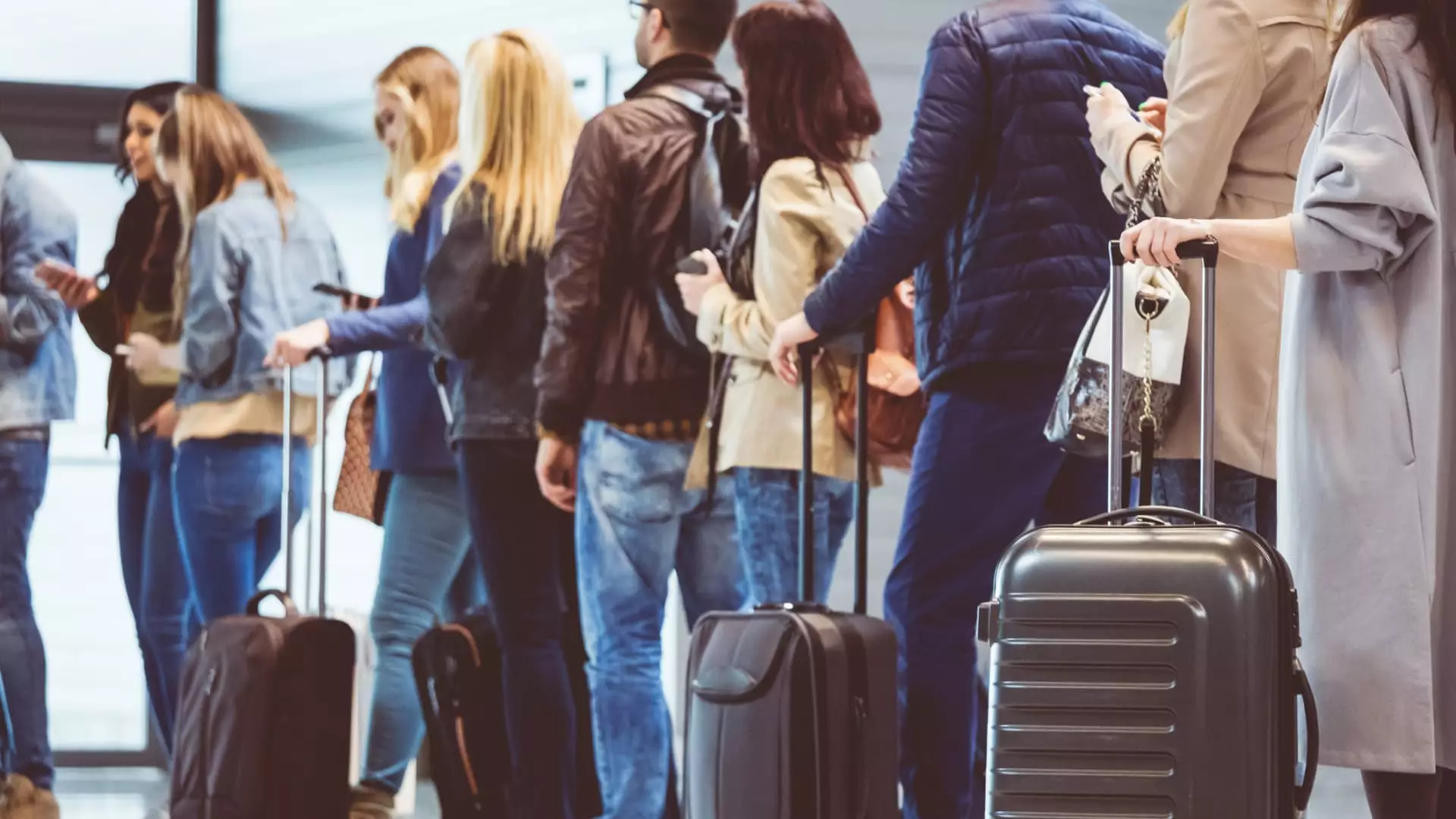Southwest Airlines, renowned for its no-frills, customer-centric approach, has decided to pivot away from its once-cherished tradition of first-come, first-served boarding. Instead, the airline is now selling assigned seats and creating new boarding groups, a move slated to take effect by late January. While at face value this change might seem innocuous—merely another step in modernization—the implications reveal a deeper, more troubling trend: the erosion of egalitarian principles that once made Southwest a symbol of accessibility and fairness in air travel.
The airline’s nostalgia-inducing approach was rooted in a shared experience, a democratic process where travelers—regardless of wealth, status, or timing—had an equal shot at securing preferred seats. Now, that sense of fairness is replaced by a market-driven model where consumers are nudged to pay extra for better boarding positions. This subtle shift prioritizes profit over passenger fairness, subtly transforming a service once viewed as more egalitarian into yet another arena of economic stratification.
Economic Inequality Woven Into the Boarding Process
The real concern isn’t just the move itself; it’s what it signals about our societal values. Airlines increasingly treat travel as a commodity where privilege and wealth determine the quality of experience. The decision to charge for early boarding privileges places a financial burden on travelers who, by virtue of their budget constraints, might be relegated to the back or the middle of the plane—spaces less desirable and more crowded—or to last in line, risking limited overhead bin space or even an unpleasant sardine-like boarding experience.
This model exacerbates class disparities within the cabin. Those who can afford to pay for early access secure their overhead storage, comfortable seats, and less stressful boarding, while those with limited means are systematically marginalized into uncomfortable zones. It’s a reflection of broader societal inequalities where economic resources dictate the quality of everyday experiences, including air travel.
Moreover, this change seems to undermine the very concept of fairness that once distinguished Southwest from its more traditional competitors. The airline’s reputation for simplicity and affordability is tarnished if basic services such as boarding are now effectively a pay-to-play privilege. It smacks of transactional superficiality, turning what was an egalitarian experience into a curated set of options—those who pay more get ahead, those who pay less are left behind.
The Illusion of Choice and the Power of Market Forces
While promotions of “choice” and “perks” dominate the marketing narrative, they often divert attention from the real driver behind these strategies: profit maximization. Charging for early boarding or prioritized seat selection shifts the focus from consumers’ needs to airlines’ bottom line. It creates a pseudo-sense of control, a false empowerment that consumers might feel when purchasing “privileges,” but in reality, they are simply paying for a more comfortable and less stressful journey—one that affluent travelers can secure, leaving the rest in less desirable situations.
This setup raises a deeper question: Are these additional options genuinely enhancing customer experience or merely capitalizing on passengers’ anxieties about missing space, comfort, or convenience? The truth is, for most travelers, these add-ons are luxuries, not necessities. Yet, they are often presented as must-have upgrades, subtly pressuring individuals to spend more simply to enjoy the basic level of service that used to come included in the fare.
Furthermore, the stratification of boarding privileges reveals a troubling trend: the commodification of service quality. As airlines diversify their offerings into tiers of privileges, the core experience becomes fractured into someone’s privilege, not an inherent entitlement. This homogenized segmentation of consumers echoes broader societal divisions, where market forces determine the quality of one’s experience rather than fairness or uniformity.
Potential Consequences: An Airline Industry in Transition
Southwest’s move is likely to set a precedent, pushing other budget carriers to follow suit. If we continue down this path, the very essence of equitable travel is at risk of being diminished. For many, air travel was once one of the few venues where socioeconomic status did not directly impact the experience—an egalitarian space where, at least in theory, everyone paid the same fare for the same journey.
Instead, what we see now is a gradual slide into a layered, tiered structure—where experience is no longer universal but dependent on disposable income. This trend threatens to extend beyond the boarding gate, infiltrating every aspect of the travel experience, essentially privatizing the perception of fairness and turning it into a marketplace commodity.
Significant questions remain about the societal values that underpin our commercial airlines. Should a vital mode of transportation serve as a symbolic equalizer, or should it reflect and reinforce existing inequalities? In my opinion, the shift towards commodifying even the most basic elements of air travel through additional fees is a betrayal of fairness and a step backward for consumer rights.
The airline industry’s pivot reflects broader economic forces that favor the wealthy and marginalize the less affluent. While some might argue that paying for perks is a matter of choice, it’s clear that for many passengers, these fees are a barrier to a dignified, comfortable journey. As we watch this trend unfold, it’s evident that the core principle of fairness in air travel is at risk—a domino effect that could reshape how society perceives essential services amid growing economic disparities.

